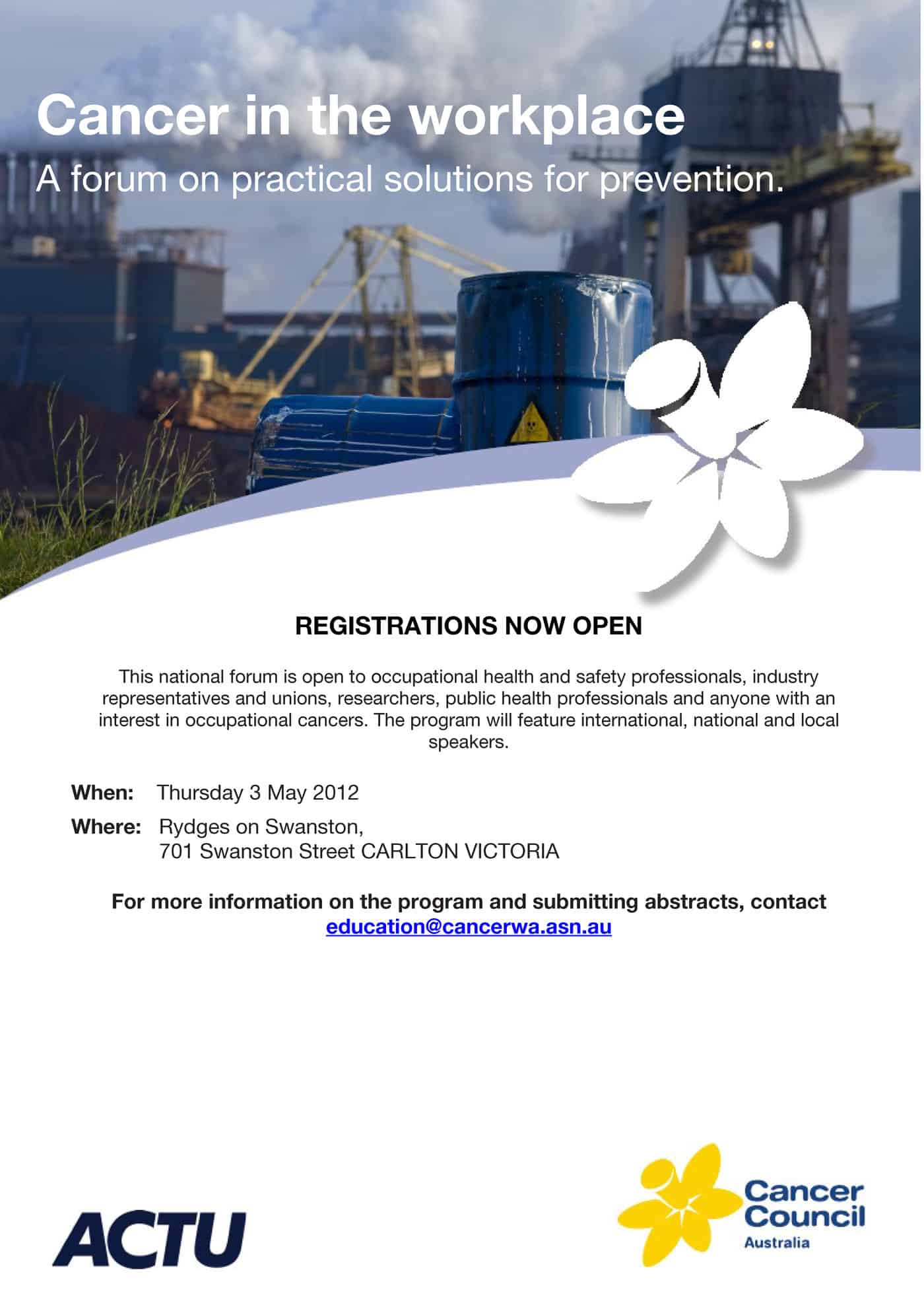 In November 2010 Geoff Fary left his role with the Australian Council of Trade Unions (ACTU) to chair the Asbestos Management Review. On May 3 2012 Geoff Fary will join other keynote speakers in a full day seminar in Melbourne called “Cancer in the workplace – a forum on practical solutions for prevention“. This event has been jointly organised by the ACTU and the Cancer Council of Australia.
In November 2010 Geoff Fary left his role with the Australian Council of Trade Unions (ACTU) to chair the Asbestos Management Review. On May 3 2012 Geoff Fary will join other keynote speakers in a full day seminar in Melbourne called “Cancer in the workplace – a forum on practical solutions for prevention“. This event has been jointly organised by the ACTU and the Cancer Council of Australia.
Australia’s trade union movement has a good record in asbestos- and cancer-related seminars but rarely do they gain much traction outside of their sector. The cooperation with the Cancer Council will broaden the appeal of the seminar into more general workplace health consideration, particularly with a speaker from the United States, Lucille Servidio of Capaccio Environmental Engineering. Local speakers are not overlooked with, probably, Associate Professor Tim Driscoll being the most recognisable participant to OHS professionals.
With the increasing attention to workplace health, concern over cancer clusters and breast cancer risks in nightshift workers, these very affordable seminars often give terrific value – not something that one always gets from the seminars that cost of $A2000 a day.

![iStock_000002335978Small[1] asbestos](http://safetyatworkblog.files.wordpress.com/2012/04/istock_000002335978small1-asbestos.jpg?w=198) The following article illustrates how important it is for companies to maintain accuracy when writing a media release about safety laws. The internet allows for inaccuracies to become widely distributed and for these to gain some legitimacy through the re-publication on various OHS, magazine and news websites.
The following article illustrates how important it is for companies to maintain accuracy when writing a media release about safety laws. The internet allows for inaccuracies to become widely distributed and for these to gain some legitimacy through the re-publication on various OHS, magazine and news websites.